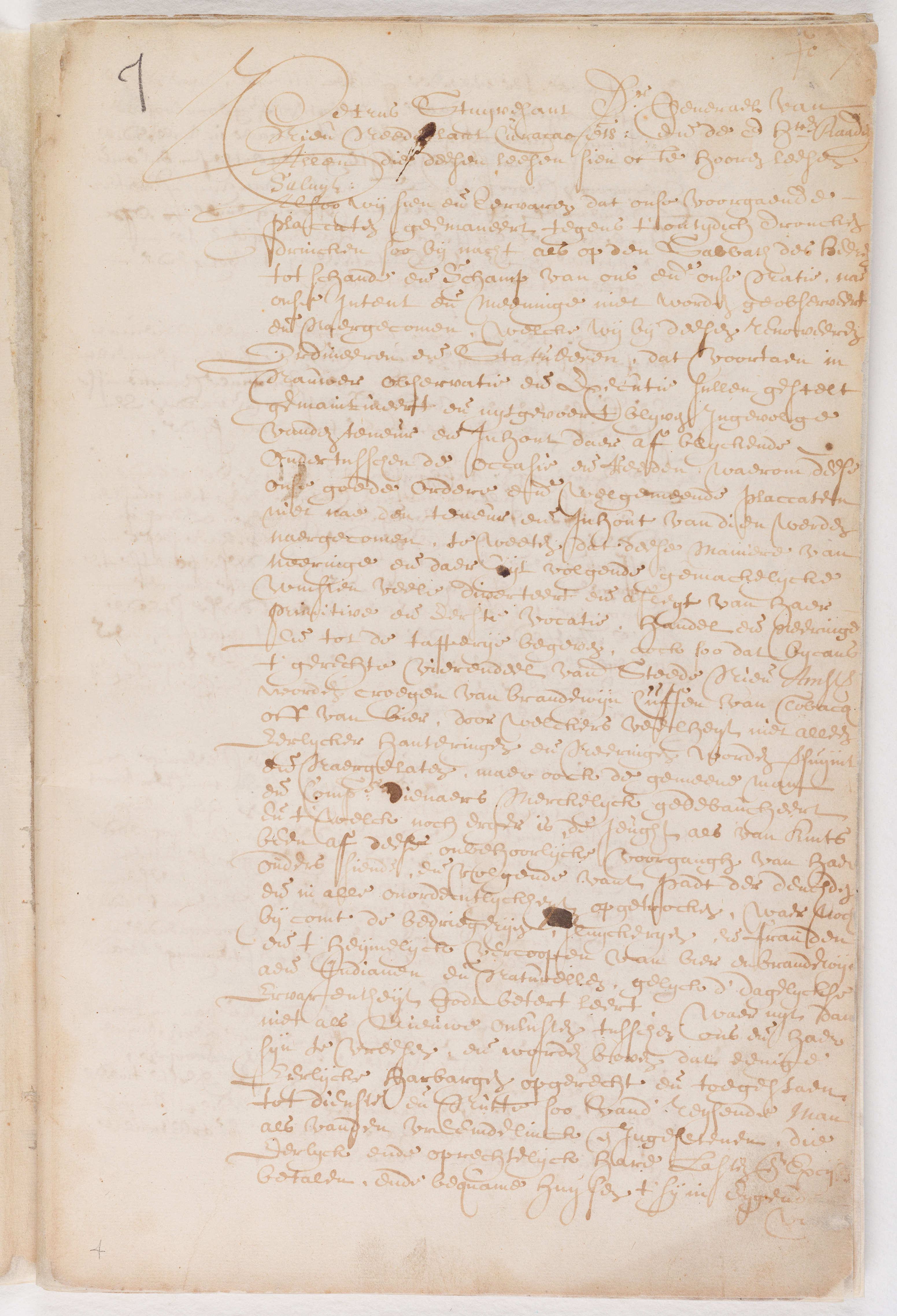Petrus Stuyvesant, Director General of New Netherland, Curaçao etc. and the Honble Council to All, who shall see these presents or hear them read, Greeting.
WHEREAS we see and are informed, that our former orders issued against unreasonable and intemperate drinking at night and on the Sabbath of the Lord, to the shame and derision of ourselves and our nation, are not observed and obeyed, as we intended and meant, we renew them herewith and command, that henceforth they shall be maintained and executed according to their tenor and contents. Meanwhile the reasons, why our good orders and well meant laws have not been observed according to their tenor and contents are, that this way of earning a living and the easily made profits therefrom please many and divert them from their first calling, trade and occupation, so that they become tapsters and that one full fourth of the City of New Amsterdam has been turned into taverns for the sale of brandy, tobacco and beer. This causes not only the neglect of honest handicraft and business, but also the debauching of the common man and the Company's servants and what is still worse, of the young people from childhood up, who seeing the improper proceedings of their parents and imitating them leave the path of virtue and become disorderly. Add to this the frauds, smuggling, cheating, the underhand sale of beer and brandy to Indians, as shown by daily experience, may God better it, which may only lead to new troubles between us and them. If besides these some honest tavernkeepers are licensed and open their places for the service and benefit of the traveler, the stranger and the inhabitant, honestly paying their charges and excise dues and living in convenient houses, either their own or as tenants, which increases their expenses, they are noticeably injured in their licensed and approved business by such fraudulent innkeepers: this we wish to prevent, according to the exigency of the case and the demands of the time, to the best of our ability: Therefore we, the Director-General and Council as aforesaid ordain and make the following regulations on the subject of tapsters and tavernkeepers.
1.
Henceforth no new taproom, tavern or inn shall be opened, except with the special knowledge and consent of the Director and Council, the consent to be granted by unanimous vote.
2.
The taverns, taprooms and inns, already established, may continue for at least four consecutive years, but in the meantime the owners shall be obliged to engage in some other honest business at this place with a convenient and decent burghers dwelling, to the ornament of this City of New Amsterdam, each according to his condition, social position and means and subject to the rules and regulations, made by the DirectorGeneral and Council with the advice and knowledge of the Surveyors.
3.
The tavernkeepers and tapsters are allowed to continue in their business for four years at least, but only on condition, that they shall not transfer their former occupation of tapping and selling liquor by the small measure nor let their houses and dwellings to another party, except with the previous advice and full consent of the Director General and Council.
4.
Item the tavernkeepers and tapsters shall henceforth not be allowed, to sell or give beer, wine, brandy or strong waters to Indians or provide them with it by intermediaries, under the penalty of forfeiting their business and arbitrary correction at the discretion of the judge.
5.
To prevent all fighting and mishaps they shall daily report to the Officer, whether anybody has been hurt or wounded at their houses, under the penalty of forfeiting their business and a fine of one pound Flemish for every hour after the hurt or wound has been inflicted and been concealed by the tapster or tavernkeeper.
6.
The orders, heretofore published against unseasonable night tippling and intemperate drinking on the Sabbath, shall be obeyed by the tavernkeepers and tapsters with close attention, to wit: they shall sell nothing by the small measure in the evening after the ringing of the bell nor shall they sell beer or liquor to anybody, travelers and tableboarders excepted, on Sunday before 3 o.c. p.m., when the divine service is over under the penalties fixed by proclamation.
7.
They shall be held, not to receive any beer or wine or distilled waters into their houses or cellars, directly or indirectly, before they have so reported at the office of the Receiver and been given a certificate, under penalty of losing their business, beer and liquor and a considerable fine besides, to be imposed by the judge.
8.
Finally, all tavernkeepers and tapsters, who intend to continue in their occupation, shall eight days after the publication hereof present themselves in person and give their names to the Director General and Council and there solemnly promise, that they will faithfully obey, what rules have been or may be made on the subject of tavernkeepers and tapsters and to comport themselves in their business, as it behooves to honest and faithful subjects.
Done at the meeting in Fort Amsterdam, March 10, 1648.


